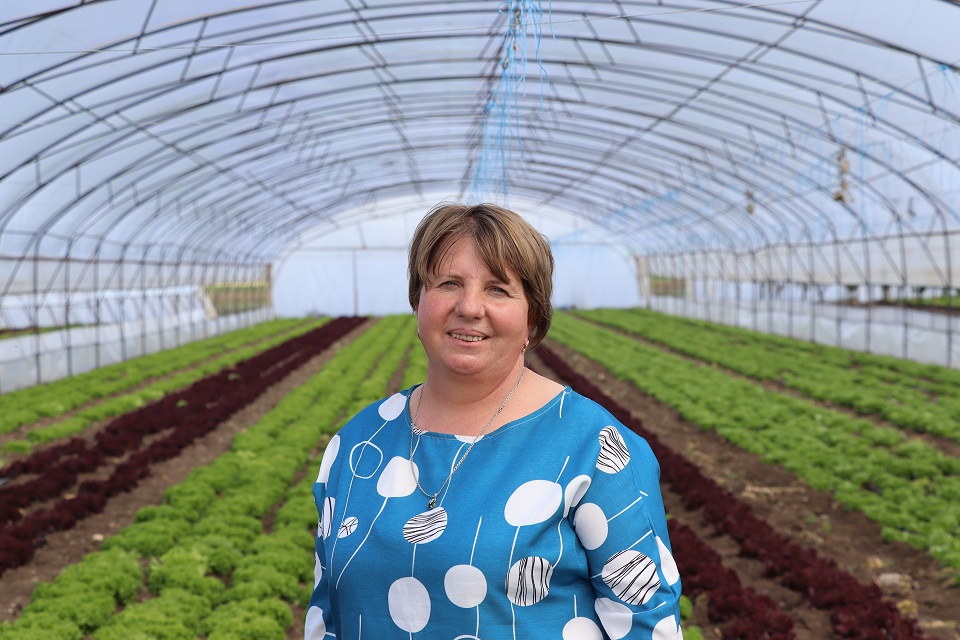
“When I moved here, I lived in a railway wagon at first. Although I was given land, it was four kilometres away, and walking a long distance to cultivate it doubled the work. However, I still got involved in agriculture and started making an income: there are cottages nearby, and vacationers asked me if they could buy corn from me. That’s how I started selling crops,” recalls 43-year-old widow Khatuna Bolkvadze, an ecomigrant from Adjara who now lives in the village of Maradisi in Marneuli Municipality with her two children.
Khatuna gradually increased her production of corn and continued to sell it in the Tbilisi market. She already had some farming experience when she heard that UN Women and the TASO Foundation were implementing the project “Women’s Economic Empowerment in the South Caucasus” in her village. She was interested in acquiring new knowledge and funding opportunities and decided to participate without hesitation.
“From the very beginning, I was hopeful, and this hope came true: winning the grant competition became the springboard of my life,” says Khatuna. “With the money I received, I developed my existing crops, bought new seeds and doubled my income. Then I took out a loan and bought three more greenhouses.”
In addition, the training course at the Academy of the Ministry of Finance, which she attended as part of the project, helped Khatuna to improve her business management skills. And from there, she continued to learn through the horticulture programme at the local professional college.
“I had only finished ninth grade, and I always wanted to study, have peers and become friends with them. I am glad that I was finally able to fulfil my wish. This knowledge will help me to get a certificate, meet the regulations and sell my crops even more successfully,” says Khatuna, who is now a teacher herself. She proposed creating a practical course in horticulture at the professional college together with local women and received approval. Khatuna managed to teach horticulture to 15 students in the past three months.
“The project gave me more opportunities and opened more doors for me. I became a real entrepreneur,” says Khatuna. Now she is preparing to implement one more new plan. She wants to turn her childhood passion of cooking into a business by opening the first bakery in the village. This idea too traces its originto the project: after the participants were treated to Khatuna’s cakes at the meetings, the women advised her to take private orders. They spread the word, and now Khatuna always caters the gatherings and events held in Maradisi. This is one more source of income for her family.
Together with Khatuna, 233 women from the Kvemo Kartli region are involved in the project, 139 of whom are members of self-help groups. Within the framework of the project, 16 participants have received an economic grant, and seven have received educational funding.
UN Women is implementing the regional project “Women’s Economic Empowerment in the South Caucasus” in cooperation with the Kakheti Regional Development Foundation, the TASO Foundation and CARE Caucasus, with the financial support of the Swiss Agency for Development and Cooperation and the Austrian Development Cooperation.

